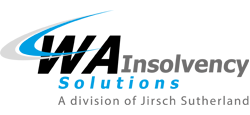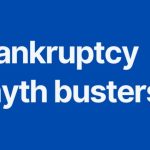ASIC’s new Industry Funding Model is now in effect but the inclusion of registered liquidators remains contentious.
From July 1, all ASIC-regulated entities are required to pay an annual levy, with the first invoices to be issued in January 2019 for the 2017-18 financial year. Following industry consultation, the levy imposed on registered liquidators was halved from $5000 to $2500.
However, University of Melbourne Professor, Helen Anderson, says the levy is an “unnecessary burden” on an already strained profession.

Helen, who heads up the Phoenix Research Team comprising researchers from Melbourne University and Monash University, recently spoke at an end-of-financial year lunch organised by Jirsch Sutherland’s Geelong office. She says one of her main concerns about the funding model is that liquidators are already at risk of not being paid for the work they do and this is a further imposition on them.
“While ASIC needs funds to regulate liquidators, liquidators actually play an important role in ASIC’s wider regulation of the wrongdoing, especially around illegal phoenix activity,” she says. “I believe an exception should be made for liquidators regarding the levy. The levy just makes it that bit harder for liquidators, who already risk not being paid where the phoenix activity has resulted in the company being stripped of assets.”
The accountants and lawyers who attended the Jirsch Sutherland lunch learned about the extent of illegal phoenix activity in Australia and how it is used to avoid paying creditors, tax and employee entitlements.
The federal government puts the annual cost of illegal phoenix activity to the economy at between $1.9 billion and $3.2 billion. The activity has also come under the spotlight following the alleged $165 million Plutus Payroll tax fraud syndicate and connections of the family of former deputy tax commissioner, Michael Cranston, to Plutus Payroll.
Greater transparency needed
A report released by the Phoenix Research Team earlier this year showed how easy it is to set up illegal phoenix companies. The report recommended the introduction of a mandatory Director Identification Number (DIN) and greater transparency around the history of company directors.
While an earlier report from the Productivity Commission recommended the implementation of DINs for every Australian wanting to direct a company, the timing of their introduction remains uncertain.
Helen says she feels if people were more aware that they could be easily tracked, they would be less likely to engage in phoenixing. “I also believe that information from ASIC should be far more readily available,” she says.
Helen calls for greater transparency, the availability of company registration information to be more widely available and free of charge, and for greater information sharing between agencies including ASIC, the Australian Tax Office, the Federal Police and the Fair Work Ombudsman.
On the subject of unscrupulous pre-insolvency advisers, Helen says there are already powers available to hold them accountable, “but they tend to not be held to account”.
“More significant actions need to be taken against the most prominent ones,” she says. “They’re fairly blatant about what they’re doing. At the same time, it’s important that ASIC doesn’t suggest that all liquidators are the same. In fact, the majority of liquidators are disgusted with the actions of pre-insolvency advisers, which just make liquidations harder.”

Phillip McGibbon, Jirsch Sutherland Partner in Geelong, agrees with Helen saying his firm believes the focus of ASIC and the ATO should be on four key elements: education, licensing, compliance and insurance.
“The same level of regulation should apply to these operators as is in place for those who provide financial advice,” he says. “Phoenixing is nothing new, but what’s brought it back into the spotlight is a number of unscrupulous ‘pre-insolvency’ operators who have caught the eye of regulators.
“Unfortunately, these are operators who offer restructuring or insolvency advice without the proper training or insurances – and the behaviour of the minority undermines the legitimate, regulated operators.”
Professor Helen Anderson will be speaking at a special Jirsch Sutherland event in Sydney on Thursday, 7 September 2017. For more information or to reserve your place, please contact us on (02) 9236 8333 or email admin@jirschsutherland.com.au.











